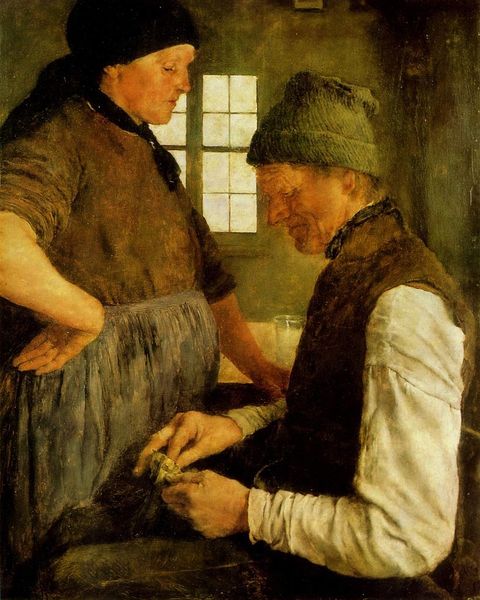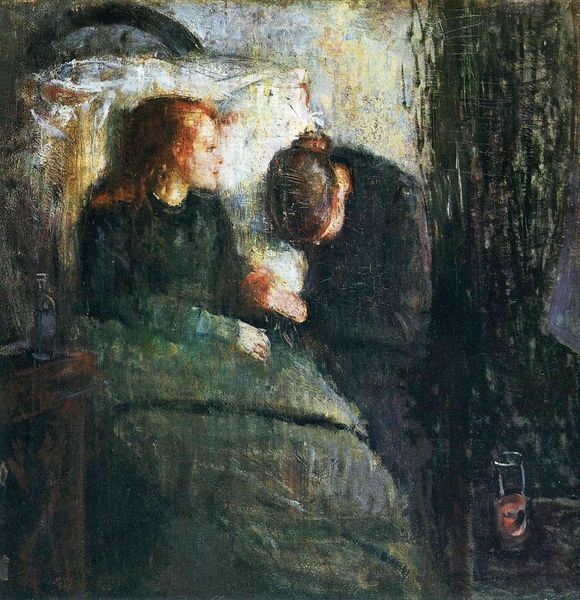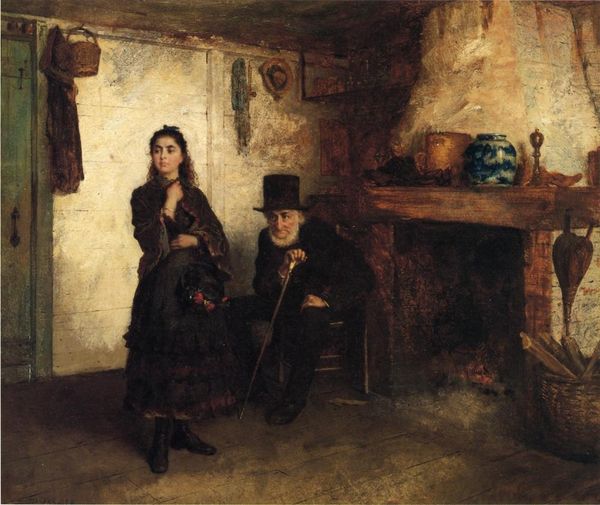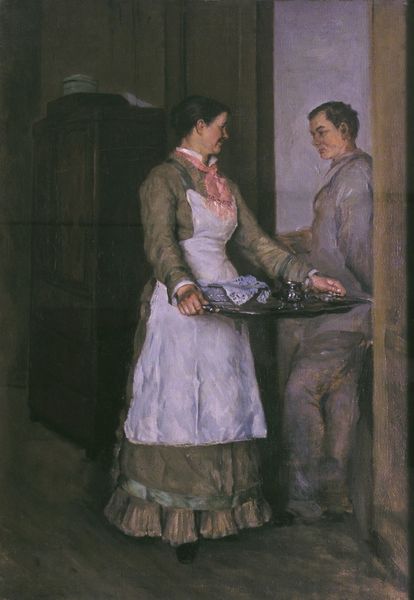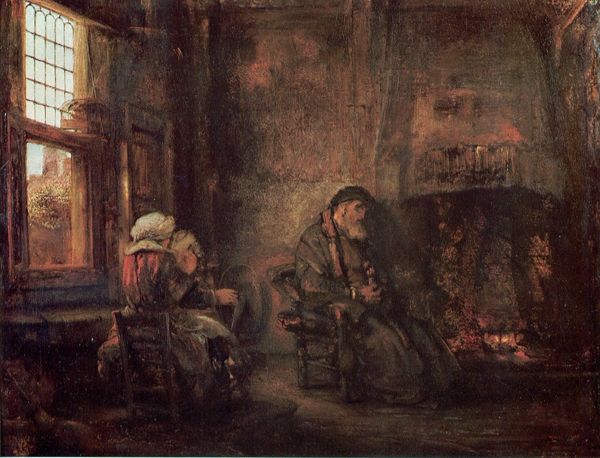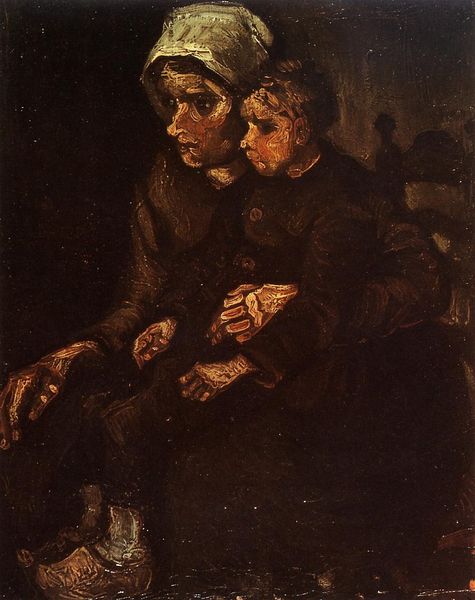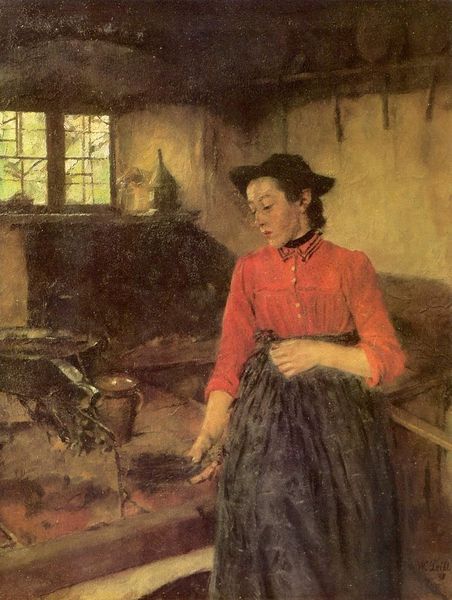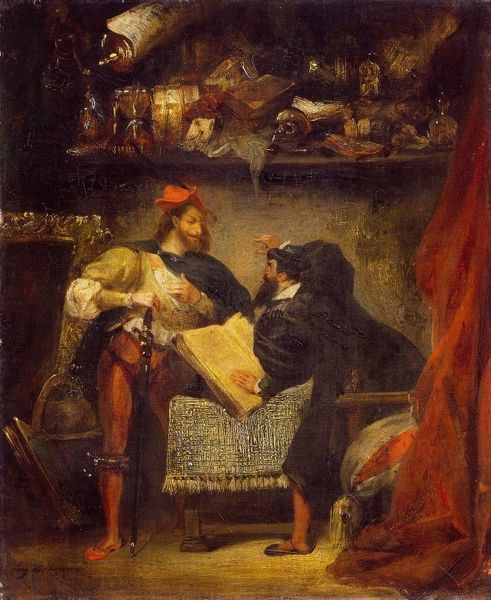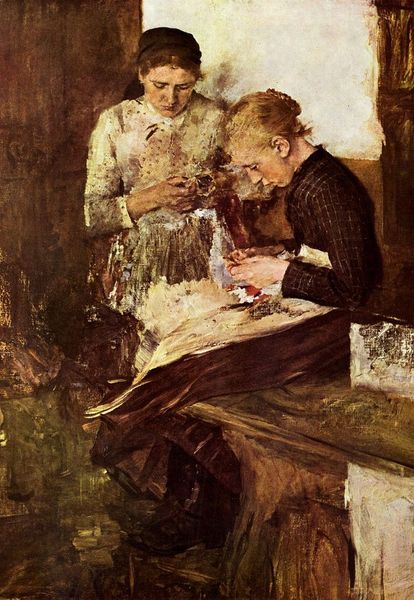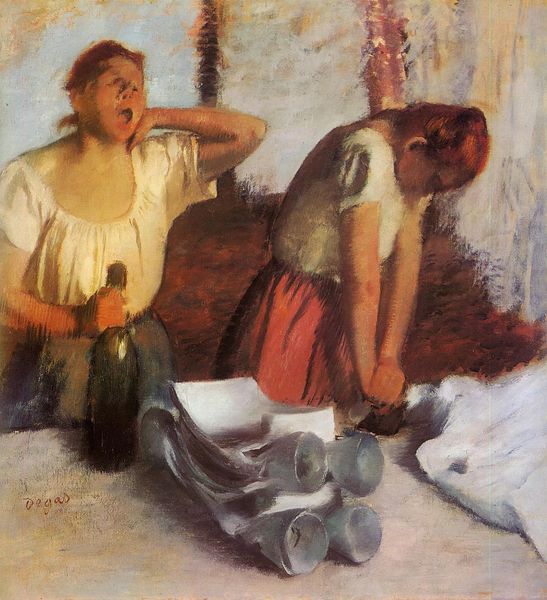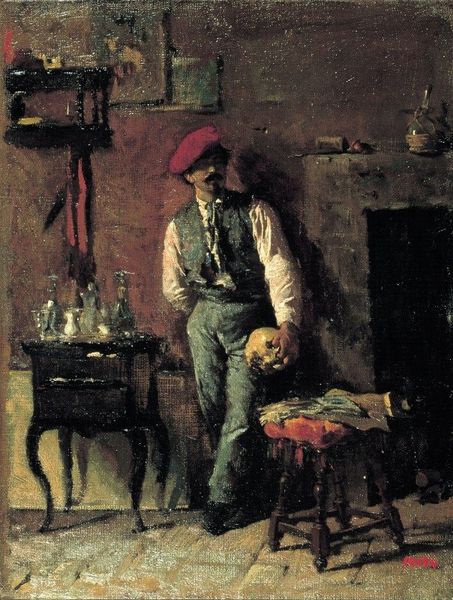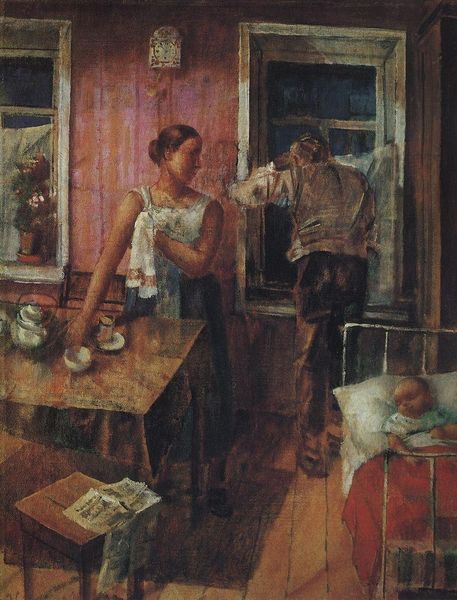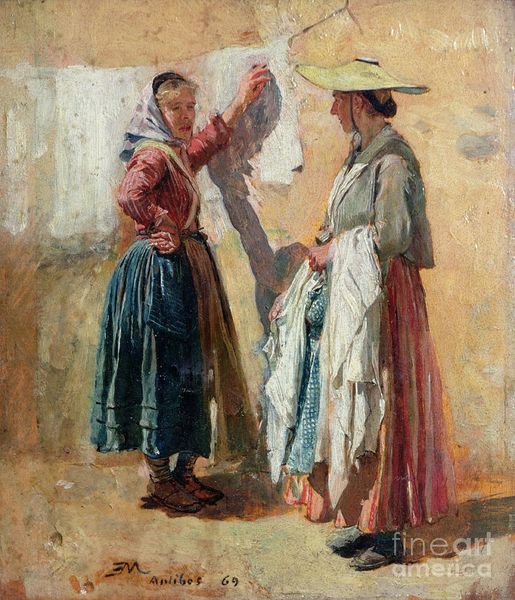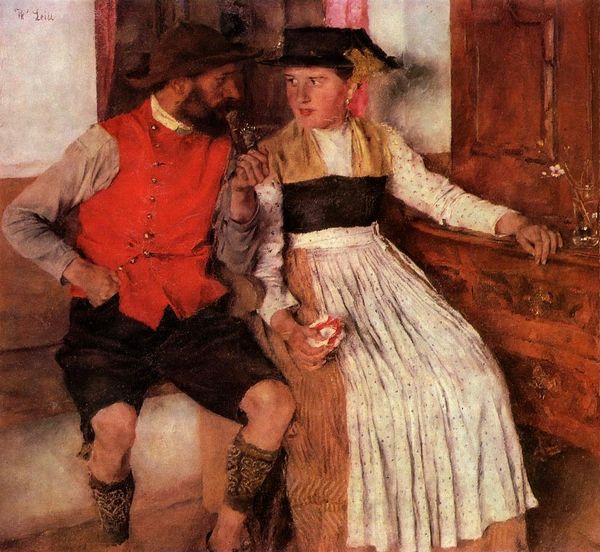
painting, oil-paint
#
portrait
#
painting
#
oil-paint
#
german-expressionism
#
oil painting
#
genre-painting
#
realism
Copyright: Public domain
Editor: Here we have Wilhelm Leibl's "In der Küche (Küche in Kutterling)", an oil painting from 1898. It's rather somber, a study in browns and shadows, depicting what appears to be two figures at work. What do you see in this piece beyond the surface representation? Curator: This work offers a window into the lives of working-class individuals in 19th-century Germany, and beyond that, challenges us to confront the historical realities of class and labor. How does the artist's stark realism contribute to a broader commentary on the social structures of his time? Consider the deliberate lack of romanticism; the raw portrayal almost feels like an exposé, don't you think? Editor: I hadn't considered that interpretation, I was focusing on the technical aspects. The muted colors seemed more aligned with the Realist movement, emphasizing everyday life without necessarily critiquing it. Curator: But realism, especially in Leibl's hands, isn't simply about mirroring reality. It's about drawing attention to the material conditions shaping lives. Notice how the figures are framed, almost trapped, by the interior space. What does that imply about their agency and social mobility? Editor: So, Leibl isn't just painting a kitchen scene; he's making a statement about social constraints. The darkness in the painting, therefore, serves not only as a visual element but as a symbol. Curator: Precisely! And by displaying them in this way, what dialogue does Leibl establish between the viewer and the subject, concerning questions of empathy, ethics, and power dynamics? Editor: I see what you mean. It’s made me rethink how art engages with socio-political narratives of labour and working-class representation. Curator: And that’s the beauty of it! This deeper contextual understanding truly changes the way you will consider any work going forward.
Comments
No comments
Be the first to comment and join the conversation on the ultimate creative platform.
